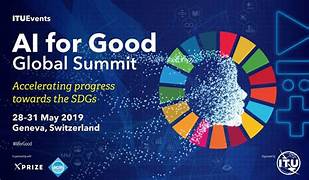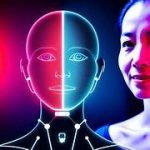Development of AI for Humanitarian and Social Good
Artificial Intelligence (AI) is revolutionizing industries, with its applications extending beyond technology, healthcare, and business to a significant role in humanitarian and social good efforts. As AI technology continues to advance, its potential to address some of the world’s most pressing issues, such as poverty, hunger, education, health, and climate change, has become more apparent. The development of AI for humanitarian and social good is not only about creating intelligent systems but also about harnessing these systems to enhance the well-being of individuals and communities worldwide.
The Intersection of AI and Humanitarian Efforts
AI is not just a tool for economic advancement but a powerful resource to solve critical social problems. Humanitarian organizations have started to realize AI’s potential to support disaster response, human rights protection, sustainable development, and public health. By integrating AI into their work, these organizations can improve the efficiency, effectiveness, and reach of their efforts, transforming how they operate in areas of need.
One of the primary ways AI contributes to humanitarian efforts is through data analysis and decision-making. Humanitarian projects often rely on vast amounts of data to make informed decisions. AI tools, such as machine learning and predictive analytics, can sift through this data faster and more accurately than traditional methods. For instance, AI algorithms can predict where food shortages might occur, identify areas at risk of disease outbreaks, or analyze migration patterns to anticipate the needs of displaced populations. AI-driven data analytics enable quicker and more informed interventions, saving lives and resources in emergencies.
Addressing Global Challenges with AI
1. Poverty and Inequality
AI’s potential to reduce poverty and inequality is vast. By providing more accurate data and personalized solutions, AI can help governments and non-governmental organizations (NGOs) create targeted programs that address the specific needs of impoverished communities. AI-driven tools can assist in identifying vulnerable populations, offering tailored financial aid, and improving access to essential services like healthcare, education, and clean water. For example, AI can help microfinance institutions determine which low-income individuals are most likely to benefit from small loans, thereby facilitating better economic inclusion.
Furthermore, AI can enhance job creation by supporting small businesses and providing training programs that help individuals acquire new skills. Through intelligent automation, AI can also enable the scaling of various social impact programs, such as providing accessible education or creating job opportunities in remote areas.
2. Education
AI’s role in education for social good has immense promise. It can transform educational systems by offering personalized learning experiences, adaptive learning platforms, and smart tutoring. For disadvantaged communities or areas with limited educational resources, AI-based platforms can provide access to quality education remotely. Educational tools powered by AI can also help students with disabilities by offering personalized assistance tailored to their specific learning needs.
Moreover, AI can contribute to improving the overall quality of education by analyzing learning patterns and identifying gaps in the education system. With AI, educators can receive insights on how students learn best, enabling them to adjust teaching strategies accordingly. Furthermore, AI can automate administrative tasks, giving teachers more time to focus on their students.
3. Healthcare
Healthcare is one of the most significant sectors where AI is already making a difference. AI’s ability to analyze large datasets allows for the identification of trends, early detection of diseases, and personalized treatment options. This has profound implications for global health initiatives, especially in regions with limited access to healthcare.
For instance, AI-powered diagnostic tools can help doctors in low-resource settings make quicker and more accurate diagnoses. AI models are already being used in imaging, detecting conditions such as tuberculosis, diabetic retinopathy, and even early-stage cancers with high accuracy. Additionally, AI can assist in drug discovery, helping researchers develop medications faster and more efficiently, which is particularly crucial for tackling diseases that disproportionately affect poorer regions of the world.
Moreover, AI has the potential to bridge the gap in access to medical care by offering telemedicine services in remote areas. With AI-driven chatbots and virtual assistants, patients can receive health advice, track their symptoms, and even access mental health services without leaving their homes. This can be particularly beneficial in regions where healthcare professionals are scarce.
4. Climate Change and Environmental Protection
AI can be a game-changer in addressing climate change and promoting environmental sustainability. Through AI, it is possible to analyze complex environmental data, model climate change scenarios, and optimize resource management. AI applications can enhance disaster management by predicting natural disasters, monitoring deforestation, managing water resources, and optimizing energy consumption.
For example, AI-powered climate models can forecast extreme weather events, helping communities prepare for natural disasters such as hurricanes, floods, and droughts. Additionally, AI is used to improve renewable energy generation by predicting energy demands, optimizing energy storage, and maximizing the efficiency of solar and wind energy systems.
Another key area of AI’s environmental impact is waste management. AI technologies are being used to automate recycling processes, identify waste patterns, and optimize collection systems to reduce the carbon footprint of waste disposal.
5. Human Rights and Social Justice
AI can also play a critical role in promoting human rights and social justice. It can help monitor human rights abuses, track conflicts, and protect vulnerable populations. AI tools can scan vast amounts of social media, news outlets, and public records to detect and flag incidents of violence, discrimination, and human trafficking. These technologies allow human rights organizations to respond more quickly to emerging crises and provide real-time data that helps shape international responses.
In addition, AI has been used to combat bias and discrimination in legal systems. AI-powered systems can help ensure that individuals receive fair treatment in legal proceedings, especially in underserved communities. By removing human bias from decision-making processes, AI can contribute to building more equitable legal systems.
Ethical Considerations and Challenges
While the potential of AI for humanitarian and social good is vast, its development and implementation come with significant ethical considerations and challenges. One of the primary concerns is ensuring that AI technologies are used responsibly and do not perpetuate inequality or harm vulnerable populations.
Bias in AI models is a major issue, as AI systems are often trained on historical data that may reflect systemic biases. If not carefully managed, AI could reinforce these biases, leading to unintended negative consequences. To mitigate this, developers must work to ensure fairness and inclusivity in the design and deployment of AI systems, regularly auditing and updating models to reflect a broad range of experiences and perspectives.
Another concern is the risk of data privacy violations. Many humanitarian AI applications rely on sensitive personal data, and there must be strict safeguards in place to protect individuals’ privacy. Ethical AI development must prioritize transparency, accountability, and respect for human rights.
Conclusion
The development of AI for humanitarian and social good is an exciting frontier that holds immense promise for addressing some of the world’s most urgent challenges. From fighting poverty and inequality to improving healthcare, education, and environmental sustainability, AI can be a transformative tool for social impact. However, it is essential that AI development is guided by ethical principles to ensure that it serves the needs of all people, especially the most vulnerable.
As AI technology continues to evolve, its integration into humanitarian efforts can bring about positive change, creating more equitable, sustainable, and inclusive societies. By harnessing the power of AI responsibly, we can build a future where technology plays a central role in advancing human well-being on a global scale.


